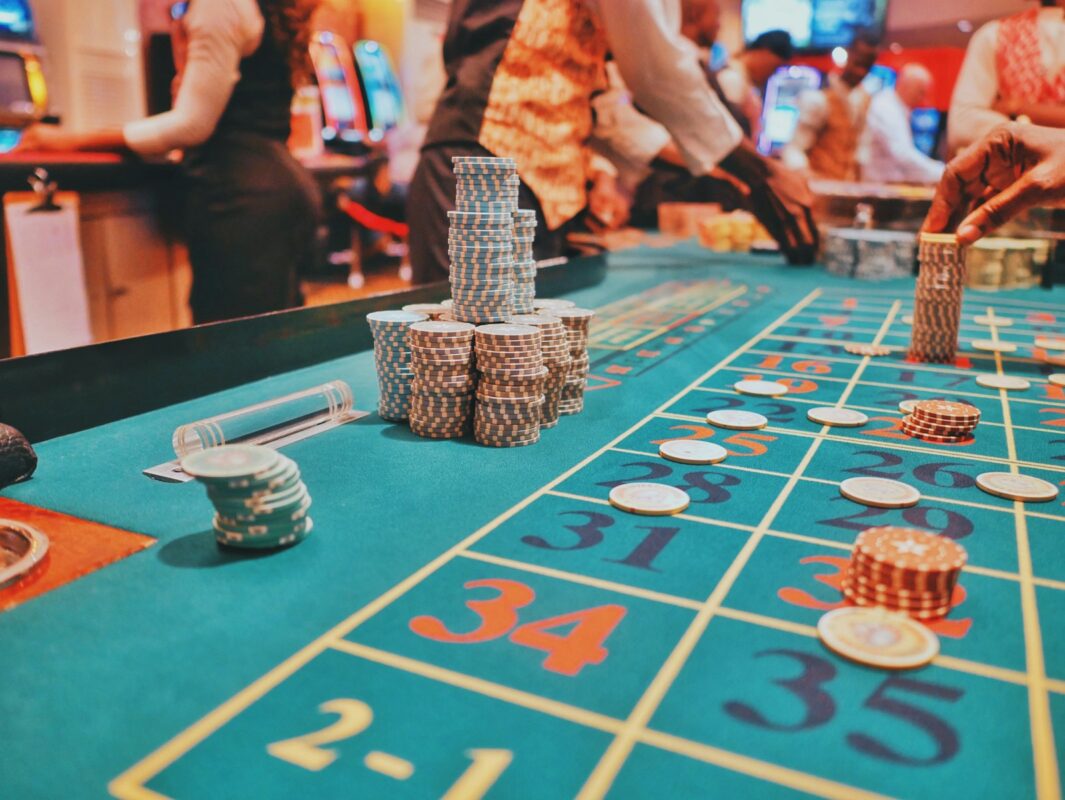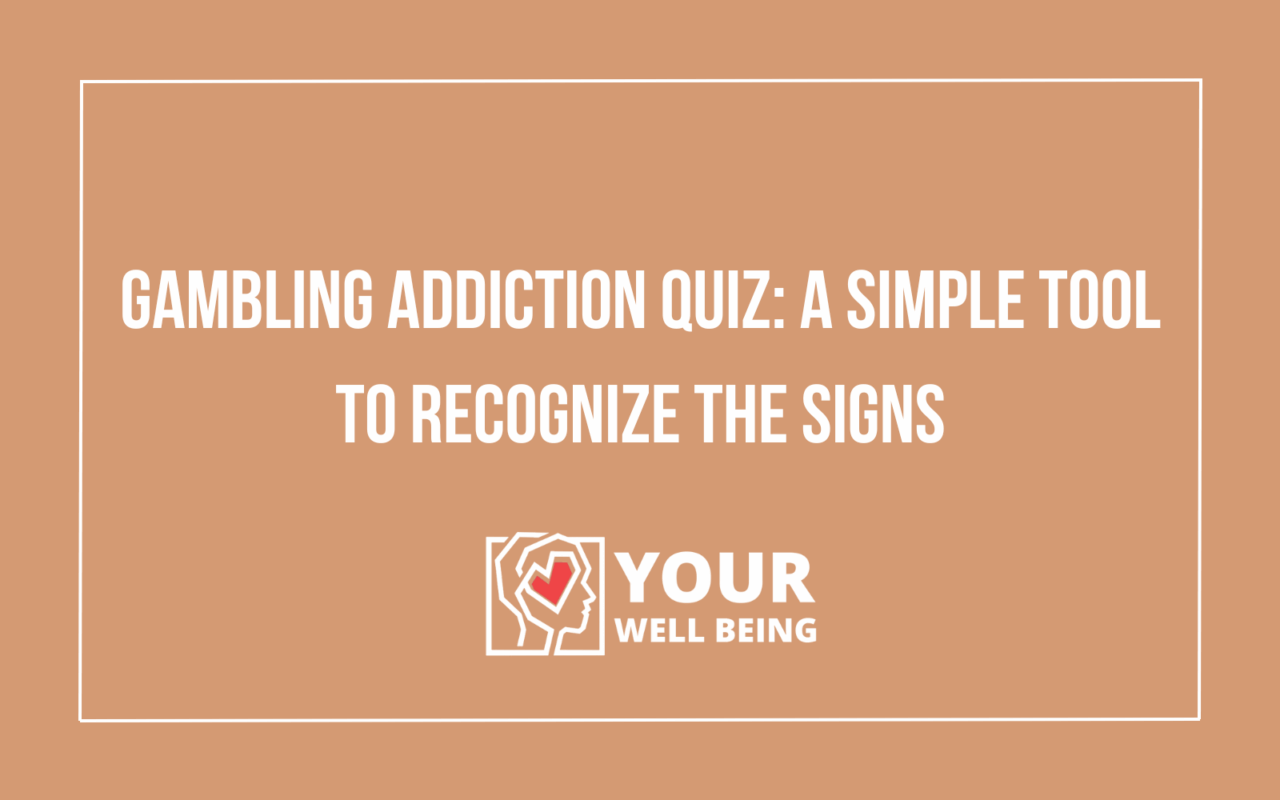A Useful Assessment Tool: Gambling Addiction Quiz
Gambling can start as a form of entertainment, a harmless escape, or even a thrilling way to pass the time. But for some, it spirals into a compulsive behavior that has serious emotional, financial, and psychological consequences. Recognizing when gambling stops being a game and starts becoming a problem is not always easy. That’s why tools like a gambling addiction quiz can be instrumental in helping individuals assess their behaviors, reflect on the consequences, and determine if it’s time to seek professional help. In this blog, we’ll explore how quizzes can be effective tools, what to look for in a gambling disorder, and how co-occurring mental health issues play a crucial role in understanding the full scope of this addiction.
What Is a Gambling Addiction Quiz?
A gambling addiction quiz is a simple but effective tool designed to help individuals evaluate their relationship with gambling. These quizzes typically contain a series of questions related to gambling habits, emotional responses, and financial consequences. While not a substitute for a clinical diagnosis, they can act as a first step toward recognizing problematic behavior. Taking the quiz can offer insights into whether gambling is a controlled recreational activity or an issue that may require professional intervention. The results can serve as a self-assessment, leading to more informed decisions about seeking help. A well-structured gambling addiction quiz can help uncover patterns such as:
• Constant preoccupation with gambling, such as frequently thinking about betting strategies, planning the next gambling session, or reliving past gambling
• Increasing bets in an attempt to recover losses or to experience the same level of excitement as before, often leading to riskier decisions
• Lying to family members or friends about the extent of gambling, often to hide the amount of time or money spent on betting, or to avoid conversations about potential gambling-related problems
• Risking important relationships or missing out on career opportunities because of excessive gambling, which can lead to broken trust, conflicts, or missed professional responsibilities
• Using gambling as a way to cope with stress, anxiety, loneliness, or other difficult emotions, often as an attempt to escape from personal challenges or overwhelming situations situations
Understanding the Signs of Gambling Addiction
Many people struggling with gambling addiction don’t initially realize how deeply it has affected their lives. The signs are often subtle at first, but they can escalate over time and begin to impact mental health, finances, and relationships. Recognizing these signs early with a gambling addiction quiz can lead to more proactive choices. Common signs of gambling addiction include:
• Constantly thinking about gambling activities
• Restlessness or irritability when not gambling
• Chasing losses in hopes of breaking even
• Borrowing money to gamble
• Withdrawing from family and social obligations
These symptoms are more than just bad habits—they reflect deeper psychological patterns that require attention. A gambling addiction quiz can provide insight into how often these behaviors are occurring and whether they are severe enough to warrant treatment.
How Co-Occurring Disorders Influence Gambling Behavior
Gambling addiction rarely exists in isolation. Many individuals with this issue also experience co-occurring mental health disorders. This combination complicates treatment but also makes early identification even more important. A gambling addiction quiz that includes questions about mood, emotional regulation, and past trauma can help pinpoint whether there are underlying issues fueling the addiction. These co-occurring disorders may include:
• Anxiety: Persistent worry can lead individuals to gamble as a form of escapism.
• Bipolar Disorder: During manic phases, individuals may take more risks, including gambling.
• Depression: Feelings of hopelessness and low mood can result in gambling as a form of self-medication.
• PTSD (Post-Traumatic Stress Disorder): Those with past trauma may seek out gambling to numb emotional pain.
• Personality Disorders: Impulsivity and unstable emotions can make someone more vulnerable to compulsive gambling.
• Schizophrenia: Cognitive distortions may interfere with the ability to make rational decisions about gambling.
• Suicidal Thoughts: The consequences of gambling addiction can be so severe that they lead to feelings of hopelessness or suicidality.
Understanding the intersection of these disorders with gambling behavior highlights the need for a holistic approach to treatment. A thorough gambling addiction quiz might flag signs of these issues, prompting a more comprehensive assessment by a mental health professional.
Why Early Assessment Matters
Many people delay seeking help because they underestimate the severity of their gambling habits. They may not recognize the emotional distress, financial hardship, or social damage that stems from their behavior. A gambling addiction quiz acts as an early intervention tool, helping people to reflect honestly and without judgment. By asking specific questions, the quiz helps individuals recognize patterns they may have been avoiding or minimizing. Some benefits of early assessment include:
• Gaining clarity about the role gambling plays in your life
• Identifying specific situations that trigger the urge to gamble
• Reducing shame by validating that gambling addiction is a legitimate mental health issue
• Opening the door to discussions with therapists or counselors
• Preventing further harm by motivating earlier treatment
Early identification through tools like a gambling addiction quiz can prevent years of struggle and accelerate the path to recovery.
What to Expect from a Gambling Addiction Quiz
If you’re considering taking a gambling addiction quiz, it helps to know what to expect. Most quizzes are anonymous, free, and take only a few minutes to complete. While they are not diagnostic tools, they offer a window into your behavioral tendencies and emotional responses. The questions are based on criteria from the DSM-5 for Gambling Disorder and focus on frequency, intensity, and impact. Typical quiz questions might ask:
• Do you feel restless or irritable when trying to cut back on gambling?
• Have you tried to hide the amount of money or time spent on gambling?
• Do you feel guilt, shame, or anxiety after gambling?
• Have you ever borrowed money or sold possessions to finance your gambling?
• Has gambling caused problems at work, school, or home?
dAnswering these questions truthfully can offer an accurate snapshot of your current risk level and point you toward resources if help is needed.
The Role of Mental Health in Gambling Addiction
Gambling addiction is classified as a behavioral addiction, but it is deeply intertwined with mental health. For many, gambling becomes a coping mechanism for emotional distress. Others may be predisposed due to genetics or childhood trauma. Taking a gambling addiction quiz that includes questions about emotional regulation, mood, and life history can reveal the broader picture. Mental health conditions often involved in gambling addiction include:
• Anxiety: Individuals may gamble to relieve stress or tension.
• Depression: Gambling may offer temporary relief from sadness or hopelessness.
• Bipolar Disorder: Risk-taking behavior often increases during manic episodes.
• PTSD: Flashbacks and trauma may drive individuals toward distraction-based coping methods like gambling.
• Personality Disorders: Issues with identity, relationships, and impulse control may lead to gambling as a means of escape.
• Schizophrenia: Impaired decision-making can lead to high-risk behaviors.
• Suicidal Thoughts: Loss of money, relationships, or self-worth can deepen feelings of despair.
A comprehensive gambling addiction quiz often incorporates mental health screening elements to help individuals better understand the complexity of their situation.

How to Use Quiz Results as a Guide
Taking the quiz is just the first step. The results are most effective when paired with self-reflection and, ideally, professional input. A high score on a gambling addiction quiz doesn’t mean you’re doomed—it means you’ve gained a new awareness that can lead to change. Use the results to start a conversation with a therapist, reach out to support groups, or research local treatment options. Ways to use quiz results effectively:
• Share them with a mental health professional as a starting point for therapy
• Join a support group for gambling addiction
• Begin journaling your emotional triggers and gambling patterns
• Consider a formal diagnosis and treatment plan if recommended
• Involve supportive family members or friends in your recovery journey
Even a low or moderate score can provide insights into behaviors you might want to monitor going forward. Taking a gambling addiction quiz regularly can help track your progress over time.
When to Seek Professional Help
If you’ve taken a gambling addiction quiz and recognize several risk factors or behaviors that concern you, it’s important to take the next step. Professional help is available and can make a significant difference. Therapies like CBT (Cognitive Behavioral Therapy), DBT (Dialectical Behavior Therapy), and trauma-informed care can help address both the addiction and any co-occurring mental health issues. Inpatient and outpatient programs can also provide structured support and accountability. Signs it’s time to seek help:
• You’ve tried to stop gambling but can’t
• Gambling is causing financial hardship
• Your mental health is deteriorating
• You feel hopeless or suicidal
• Your relationships are being damaged by your behavior
Early intervention leads to better outcomes. The first step could be as simple as completing a gambling addiction quiz.
Treatment Options After Taking the Quiz
If the quiz indicates that gambling is a concern, various treatment options are available to support recovery. These can range from self-help strategies to intensive therapeutic programs. What matters most is finding a treatment that addresses both the addiction and any underlying emotional or psychological challenges. Effective treatment methods include:
• Cognitive Behavioral Therapy (CBT): Helps individuals recognize and reframe distorted thinking.
• Group Therapy: Encourages connection and accountability.
• Medication Management: For individuals with co-occurring disorders like depression or anxiety.
• Family Therapy: Heals relationships and educates loved ones about gambling addiction.
• Inpatient Rehab: Provides immersive treatment in a structured environment.
• Outpatient Programs: Offers flexibility for those balancing work or family commitments.
• Support Groups: Includes options like Gamblers Anonymous (GA) for ongoing peer support.
These resources can transform quiz awareness into meaningful recovery. If a gambling addiction quiz indicates a high level of concern, don’t wait—explore your options today.
Moving Forward with Awareness and Confidence
Facing a gambling problem is never easy, but tools like a gambling addiction quiz make the first step accessible, quick, and informative. Whether you’re worried about your own behavior or concerned about someone else, taking action early can change the trajectory of your life. Remember, addiction is not a sign of weakness—it’s a condition that requires compassion, understanding, and the right support to overcome. The path to recovery includes:
• Honest self-assessment
• Professional guidance
• Ongoing mental health support
• A strong social network
• Consistent follow-through
Recovery begins with awareness. If you’re unsure where you stand, a gambling addiction quiz can give you the clarity you need to take your next step confidently.
Conclusion: Knowledge Is Power
In conclusion, a gambling addiction quiz is a valuable resource for anyone who suspects they may be struggling with their gambling habits but isn’t sure where to start. This simple tool provides a non-judgmental way to gain insight into one’s behavior and can serve as the first step toward understanding the impact gambling may have on their life. By answering a few questions, individuals can begin to reflect on their habits, identify potential red flags, and take the essential first steps toward addressing the issue. When used alongside knowledge about mental health, available support networks, and treatment options, a gambling addiction quiz becomes more than just a questionnaire—it becomes a powerful catalyst for change. It can help break through the denial that often accompanies addiction and open the door to healing and recovery. If you or someone you love might be dealing with gambling addiction, visit our website now and take a quick and easy quiz. There are many resources available, from counseling services to support groups, and recovery is always possible with the right support. Remember, your future is worth it, and every step, no matter how small, brings you closer to a healthier, more fulfilling life.


